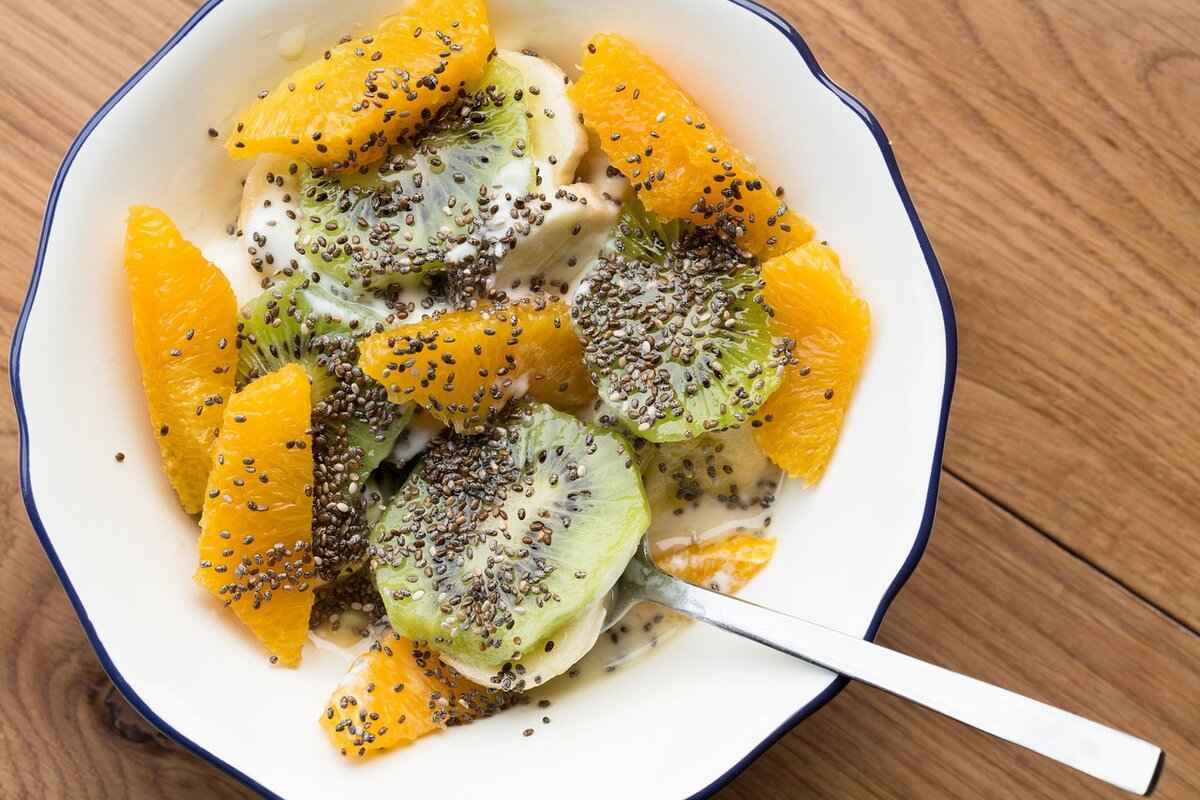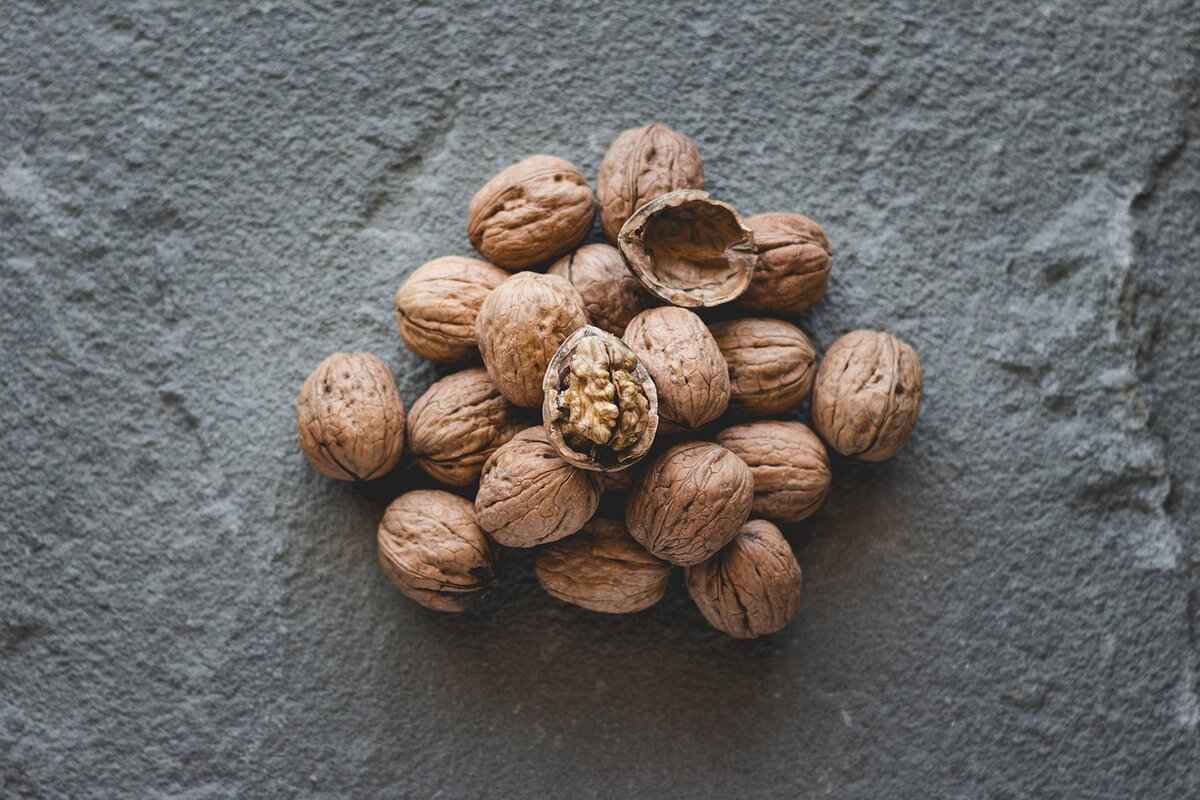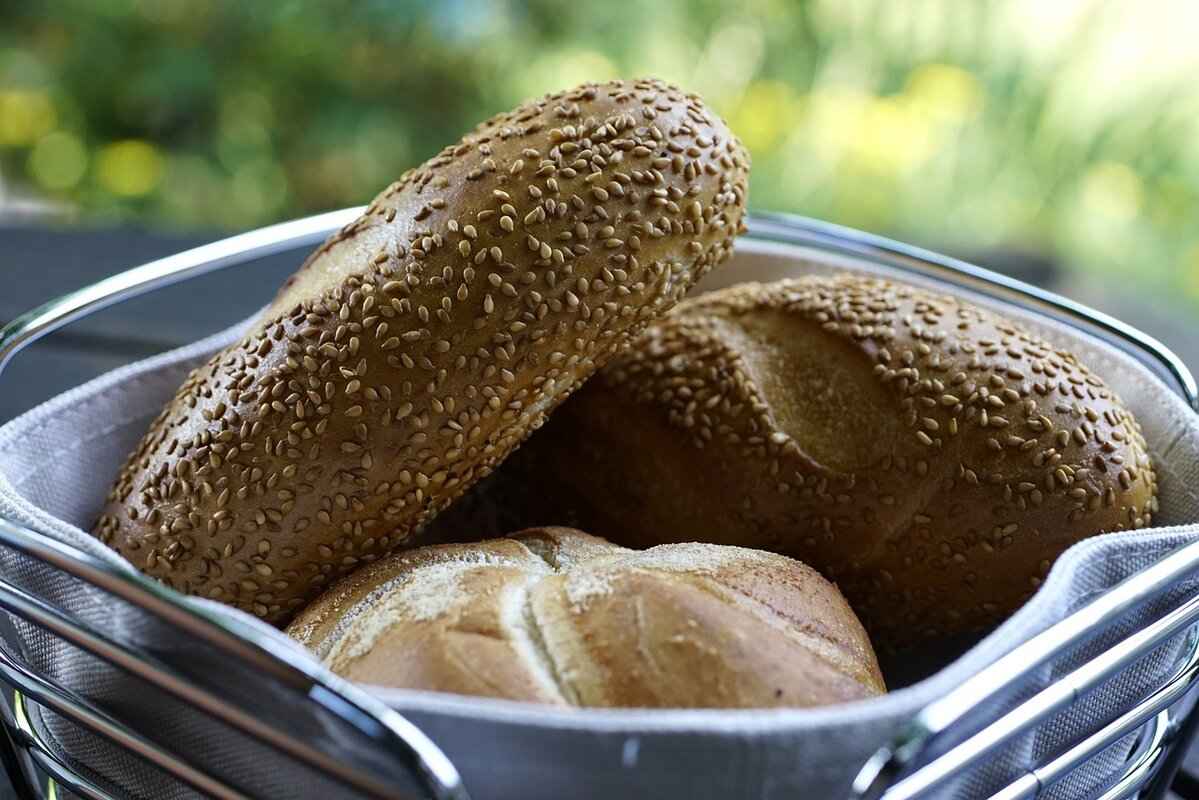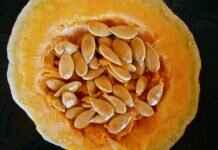Chia seeds have become a popular choice among health enthusiasts, especially for individuals aiming to lose weight. These tiny seeds, originating from the Salvia hispanica plant, are packed with nutrients that can support weight management and overall health. This article delves into their caloric content, nutritional benefits, and practical ways to incorporate them into a weight-loss diet.
Chia seeds are small, black seeds that are rich in nutrients and versatile in culinary applications. They are often referred to as a superfood due to their impressive nutrient profile. These seeds can be easily added to various dishes, making them a convenient option for those looking to enhance their diet.
A typical serving of chia seeds, which is about 2 tablespoons (28 grams), contains approximately 138 calories. Understanding their caloric content is essential for incorporating them into a balanced diet without exceeding your daily caloric goals.
Chia seeds are a powerhouse of nutrition, offering a wealth of benefits:
- Fiber: With about 11 grams of fiber per ounce, chia seeds promote digestive health and increase feelings of fullness.
- Protein: They provide a good source of plant-based protein, which is vital for muscle maintenance and repair.
- Healthy Fats: Rich in omega-3 fatty acids, chia seeds support heart health and can help manage weight by curbing cravings.
- Essential Minerals: Chia seeds are loaded with calcium, magnesium, and phosphorus, contributing to overall health.
Chia seeds can be a valuable addition to a weight-loss plan due to their unique properties:
- Hydration and Satiety: When soaked, chia seeds can absorb up to 12 times their weight in water, expanding in the stomach and promoting a feeling of fullness.
- Low Glycemic Index: Chia seeds have a low glycemic index, which means they release energy slowly, helping to stabilize blood sugar levels and reduce cravings.
Adding chia seeds to your meals is simple and versatile. Here are some ideas:
- Chia Seed Pudding: Combine chia seeds with almond milk and let them sit overnight. This makes for a nutritious breakfast or snack.
- Smoothies: Blend chia seeds into your favorite smoothies for added texture and nutrition.
- Salads and Baked Goods: Sprinkle chia seeds on salads or incorporate them into baked goods for a nutrient boost.
While chia seeds are generally safe for most people, it’s essential to consume them in moderation. Some potential side effects include:
- Digestive Issues: Due to their high fiber content, excessive consumption can lead to bloating or gas. Gradually increasing intake can help.
- Allergic Reactions: Although rare, some individuals may experience allergic reactions to chia seeds. Monitor your body’s response when trying them for the first time.
Chia seeds are widely available in grocery stores, health food stores, and online. When purchasing, look for high-quality, organic options to maximize their nutritional benefits.
- Online Retailers: Many websites offer chia seeds in bulk, providing a cost-effective way to stock up.
- Local Health Stores: These stores typically carry a variety of chia seeds, including flavored and organic versions, allowing for exploration of different options.
Incorporating chia seeds into your diet can be a delicious and nutritious way to support your weight loss journey. With their low-calorie content and numerous health benefits, these seeds truly deserve their status as a superfood.

What Are Chia Seeds?
Chia seeds are small, nutrient-dense seeds derived from the Salvia hispanica plant, which is indigenous to Central America. These tiny black seeds have gained significant popularity in recent years, particularly among health enthusiasts and those pursuing weight loss. Their remarkable nutritional profile and versatility make them an excellent addition to a balanced diet.
Chia seeds are often dubbed a superfood due to their impressive array of health benefits. They are rich in essential nutrients, including:
- Fiber: Chia seeds contain about 11 grams of fiber per ounce, which aids in digestion and promotes a feeling of fullness.
- Omega-3 Fatty Acids: These seeds are an excellent source of plant-based omega-3s, which are vital for heart health.
- Protein: With approximately 4 grams of protein per ounce, they can help meet daily protein needs.
- Minerals: Chia seeds are packed with calcium, magnesium, and phosphorus, contributing to overall health.
Chia seeds can be a valuable ally in weight loss efforts due to several factors:
- High Satiety Index: When consumed, chia seeds absorb water and expand, creating a gel-like substance that can help you feel full longer.
- Low Caloric Density: With only about 138 calories per ounce, they provide a nutrient-rich option without excessive calories.
- Blood Sugar Regulation: Chia seeds have a low glycemic index, which means they release energy slowly, helping to maintain stable blood sugar levels.
Incorporating chia seeds into your meals is simple and versatile. Here are some popular ways to enjoy them:
- Chia Seed Pudding: Combine chia seeds with your choice of milk (dairy or plant-based) and let them sit overnight for a delicious and nutritious breakfast.
- Smoothies: Blend chia seeds into your favorite smoothies for an added nutrient boost and a satisfying texture.
- Salads and Soups: Sprinkle chia seeds on salads or stir them into soups for added crunch and nutrition.
While chia seeds are generally safe for consumption, there are a few considerations to keep in mind:
- Digestive Issues: Due to their high fiber content, consuming too many chia seeds at once can lead to digestive discomfort. It’s advisable to start with small amounts and gradually increase intake.
- Allergic Reactions: Though rare, some individuals may experience allergic reactions. If you’re trying chia seeds for the first time, monitor your body’s response.
Chia seeds are widely available and can be found in various places:
- Grocery Stores: Many supermarkets carry chia seeds in the health food aisle.
- Health Food Stores: Local health food stores often offer a variety of chia seed options, including organic and flavored versions.
- Online Retailers: Numerous online platforms provide chia seeds, often in bulk, making it convenient to stock up.
In summary, chia seeds are a versatile and nutrient-dense superfood that can contribute significantly to a healthy diet and weight loss efforts. By incorporating them into your meals, you can enjoy their numerous health benefits while enhancing your culinary creations.

How Many Calories Are in Chia Seeds?
When it comes to healthy eating, understanding the caloric content of foods is crucial, especially for those aiming to manage their weight. One such superfood that has garnered attention in recent years is chia seeds. These tiny seeds are not only packed with nutrients but also relatively low in calories, making them an excellent addition to a balanced diet.
A typical serving of chia seeds, which is about two tablespoons (28 grams), contains approximately 138 calories. This caloric content is relatively low compared to many other snacks and foods, allowing you to enjoy chia seeds without the worry of excessive calorie intake.
Understanding the caloric content of chia seeds can help you incorporate them effectively into your diet without overindulging. For instance, when used in smoothies or as a topping for salads, chia seeds can enhance the nutritional profile of your meals while keeping the calorie count in check.
Chia seeds are often labeled as a superfood due to their impressive nutritional profile. They are rich in fiber, protein, and healthy fats, which contribute to their health benefits:
- High Fiber Content: Chia seeds contain about 11 grams of fiber per ounce, promoting digestive health and keeping you feeling full.
- Protein Source: With around 4 grams of protein per serving, chia seeds can help you meet your daily protein needs, which is essential for muscle repair and growth.
- Healthy Fats: They are an excellent source of omega-3 fatty acids, which are important for heart health.
Incorporating chia seeds into your meals is simple and versatile. Here are a few popular methods:
- Chia Seed Pudding: Combine chia seeds with your choice of milk (like almond or coconut) and let them soak overnight. This creates a delicious and nutritious pudding that can be enjoyed for breakfast or as a snack.
- Smoothies: Add a tablespoon of chia seeds to your smoothies for an added nutrient boost. They blend well and enhance the texture of your drink.
- Baking: Use chia seeds in baked goods like muffins or bread for a healthy twist.
While chia seeds have numerous health benefits, it’s important to consume them in moderation. Some potential concerns include:
- Digestive Issues: Due to their high fiber content, consuming too many chia seeds at once can lead to bloating or gas. It’s advisable to gradually increase your intake.
- Allergic Reactions: Although rare, some individuals may experience allergic reactions to chia seeds. Always monitor your body’s response when trying them for the first time.
Chia seeds are widely available in grocery stores, health food shops, and online. When purchasing, look for high-quality, organic options to maximize their nutritional benefits. Some popular sources include:
- Online Retailers: Numerous online platforms offer chia seeds in various forms, including bulk options, which can be cost-effective.
- Local Health Stores: Many local health food stores carry a variety of chia seeds, including flavored and organic versions.
In summary, chia seeds are a low-calorie superfood that can easily fit into a weight-loss diet. With their rich nutritional profile and versatility, they offer a myriad of health benefits while helping you stay within your caloric goals.

What Nutrients Do Chia Seeds Provide?
Chia seeds are not just a trendy addition to smoothies and salads; they are a powerhouse of nutrition that can significantly enhance your overall health. These tiny seeds pack a substantial punch when it comes to essential nutrients, making them an ideal choice for anyone looking to improve their diet.
Chia seeds are rich in fiber, protein, and healthy fats. They also contain essential minerals such as calcium, magnesium, and phosphorus, all of which contribute to a balanced diet. Let’s delve deeper into these nutrients:
- High Fiber Content: Chia seeds are an excellent source of dietary fiber, providing about 11 grams per ounce. This high fiber content aids in digestion and promotes a feeling of fullness, making it easier to manage weight.
- Protein Power: With approximately 4 grams of protein per ounce, chia seeds are a great plant-based protein source. This is especially beneficial for vegetarians and vegans looking to enhance their protein intake.
- Healthy Fats: Chia seeds are packed with omega-3 fatty acids, essential for heart health. These healthy fats can help reduce inflammation and support brain function.
- Essential Minerals: Chia seeds are rich in calcium, which is vital for bone health, magnesium, which supports muscle and nerve function, and phosphorus, which plays a key role in energy production.
Understanding the importance of these nutrients can help you make informed dietary choices:
- Fiber: A diet high in fiber can help reduce cholesterol levels, control blood sugar, and promote digestive health.
- Protein: Adequate protein intake is crucial for muscle repair, immune function, and overall growth.
- Omega-3 Fatty Acids: These fats are known for their heart-protective benefits and their role in reducing the risk of chronic diseases.
- Minerals: Minerals are essential for various bodily functions, including bone health, energy production, and maintaining fluid balance.
To fully reap the benefits of chia seeds, consider the following tips:
- Soak Before Consumption: Soaking chia seeds in water or milk before eating can enhance their digestibility and nutrient absorption.
- Incorporate into Meals: Add chia seeds to smoothies, oatmeal, or yogurt to boost nutritional value without altering the flavor significantly.
- Experiment with Recipes: Use chia seeds in baking or as a thickening agent for sauces and dressings.
In conclusion, chia seeds are a versatile and nutrient-dense superfood that can easily be incorporated into a variety of dishes. Their high fiber, protein, and healthy fat content, along with essential minerals, make them an excellent addition to any diet. By understanding the nutritional benefits and learning how to incorporate them into your meals, you can enhance your overall health and well-being.
High Fiber Content
Chia seeds are increasingly recognized as a powerful addition to a healthy diet, particularly for those pursuing weight loss. One of the most compelling attributes of chia seeds is their . With approximately 11 grams of fiber per ounce, these tiny seeds offer significant digestive benefits and can contribute to a feeling of fullness that aids in weight management.
Fiber plays a crucial role in maintaining digestive health and regulating appetite. It helps to slow down digestion, allowing for a gradual release of energy, which is essential for keeping blood sugar levels stable. This stability can help prevent sudden cravings and overeating. High-fiber foods like chia seeds can also improve gut health by promoting regular bowel movements and supporting beneficial gut bacteria.
When consumed, chia seeds absorb water and swell, forming a gel-like substance. This process not only helps to keep you hydrated but also enhances the feeling of fullness. As the seeds expand in your stomach, they can help to curb hunger pangs, making it easier to stick to your weight loss goals. Additionally, the soluble fiber in chia seeds can help lower cholesterol levels and improve overall cardiovascular health.
Incorporating chia seeds into your meals is simple and versatile. Here are some practical ways to enjoy their benefits:
- Chia Seed Pudding: Combine chia seeds with your choice of milk (dairy or plant-based) and let them sit overnight. Add fruits or nuts for extra flavor and nutrition.
- Smoothies: Blend chia seeds into smoothies for added texture and nutrients. They can enhance the creaminess of your drink while providing a fiber boost.
- Baking: Add chia seeds to muffins, breads, or pancakes to enrich your baked goods with fiber and healthy fats.
- Salads and Soups: Sprinkle chia seeds on salads or stir them into soups for a crunchy texture and nutritional enhancement.
While chia seeds are generally safe for most people, it’s important to consume them in moderation. Due to their high fiber content, eating too many seeds at once can lead to digestive discomfort such as bloating or gas. It is advisable to gradually increase your intake to allow your body to adjust.
Most individuals can enjoy chia seeds without issues, but those with certain health conditions or dietary restrictions should consult with a healthcare provider. For example, individuals with a history of gastrointestinal issues may need to be cautious with high-fiber foods.
Chia seeds are widely available at grocery stores, health food stores, and online retailers. When purchasing, look for organic and non-GMO options to ensure you are getting the highest quality product. Buying in bulk can also be a cost-effective way to stock up on this nutritious superfood.
In summary, chia seeds stand out as a nutrient-dense food that can significantly contribute to a healthy weight loss strategy. Their high fiber content not only aids in digestion but also promotes satiety, making them an excellent choice for those looking to manage their weight effectively. By incorporating chia seeds into your daily meals, you can enjoy their numerous health benefits while maintaining a balanced diet.
Healthy Fats in Chia Seeds
Chia seeds are not just a trendy superfood; they are a powerhouse of essential nutrients, particularly healthy fats. These tiny seeds are a rich source of omega-3 fatty acids, which play a crucial role in promoting heart health and overall well-being. But what exactly makes these fats so beneficial, and how can they fit into your daily diet?
Omega-3 fatty acids are a type of polyunsaturated fat that are vital for our health. They are classified into three main types: ALA (alpha-linolenic acid), EPA (eicosapentaenoic acid), and DHA (docosahexaenoic acid). Chia seeds are particularly high in ALA, which is essential for maintaining a healthy heart.
- Heart Health: Omega-3 fatty acids help reduce inflammation and lower blood pressure, which are key factors in preventing heart disease.
- Brain Function: These fatty acids are crucial for brain health and may help improve cognitive function and mood.
- Weight Management: Healthy fats can aid in managing cravings and reducing overall calorie intake, making them beneficial for those looking to lose weight.
Incorporating chia seeds into your diet can help you feel fuller for longer. When these seeds are mixed with liquid, they absorb water and expand, creating a gel-like substance. This property not only aids in hydration but also promotes a sense of satiety, which can help curb hunger pangs.
There are numerous ways to enjoy chia seeds and benefit from their healthy fats:
- Chia Seed Pudding: Combine chia seeds with your choice of milk or yogurt and let them sit overnight. This makes for a nutritious breakfast or snack.
- Smoothies: Blend chia seeds into your smoothies for an added nutrient boost. They enhance texture and increase satiety.
- Salads and Baked Goods: Sprinkle chia seeds on salads or incorporate them into baked goods for added crunch and nutrition.
While chia seeds are generally safe for most people, it’s important to consume them in moderation. Due to their high fiber content, excessive intake may lead to digestive issues such as bloating or gas. It’s advisable to start with small amounts and gradually increase your intake.
Chia seeds are widely available in health food stores, grocery stores, and online retailers. When purchasing, look for organic and high-quality options to ensure you are getting the best nutritional benefits.
In summary, chia seeds are a fantastic source of healthy fats, particularly omega-3 fatty acids, which are essential for heart health and weight management. By incorporating these seeds into your diet, you can enjoy their numerous health benefits while also managing cravings effectively.

How Do Chia Seeds Aid in Weight Loss?
Chia seeds have become a popular choice for those aiming to lose weight, and for good reason. These tiny seeds are packed with nutrients and have unique properties that can significantly aid in weight management. In this section, we will explore how chia seeds contribute to weight loss and why they are considered a powerful addition to any diet.
One of the most remarkable features of chia seeds is their ability to absorb water. When consumed, they can absorb up to 12 times their weight in liquid, forming a gel-like substance in the stomach. This expansion leads to a feeling of fullness, which can be incredibly helpful for those trying to reduce their calorie intake.
Due to their high fiber content, chia seeds can increase feelings of satiety. Each ounce of chia seeds contains approximately 11 grams of fiber, which not only aids digestion but also helps keep you feeling full for longer periods. This means you are less likely to reach for unhealthy snacks between meals, ultimately leading to a reduction in overall calorie consumption.
Chia seeds have a low glycemic index, meaning they release energy slowly into the bloodstream. This slow release helps maintain stable blood sugar levels, which can reduce cravings and prevent the energy crashes that often lead to overeating. By incorporating chia seeds into your meals, you can enjoy sustained energy without the spikes and dips associated with high-glycemic foods.
Staying hydrated is crucial for effective weight loss, and chia seeds can help with this as well. When they absorb water, they not only expand in your stomach but also contribute to your overall hydration. Proper hydration can enhance metabolic processes and promote fat burning, making chia seeds a dual-purpose ally in your weight-loss journey.
Another advantage of chia seeds is their versatility. They can be easily added to various dishes without altering the flavor significantly. Whether you sprinkle them on salads, mix them into smoothies, or use them in baking, chia seeds can enhance the nutritional profile of your meals while aiding in weight management.
When planning meals, consider incorporating chia seeds into your breakfast. For example, a chia seed pudding made with almond milk can serve as a nutritious and filling breakfast option. This not only provides you with essential nutrients but also keeps you satiated until lunchtime.
While chia seeds are generally safe for most people, moderation is key. Consuming them in excessive amounts can lead to digestive issues, such as bloating or gas, due to their high fiber content. It is advisable to start with a small quantity and gradually increase your intake to allow your body to adjust.
Though chia seeds offer numerous health benefits, they may not be suitable for everyone. Some individuals may experience allergic reactions, so it’s important to monitor your body’s response when trying them for the first time. Consulting with a healthcare professional can provide personalized guidance based on your dietary needs.
In summary, chia seeds are a nutrient-dense superfood that can significantly aid in weight loss. Their ability to absorb water, high fiber content, low glycemic index, and versatility make them an excellent addition to any weight-loss plan. By incorporating chia seeds into your diet wisely, you can enjoy their numerous benefits while working towards your weight management goals.
Hydration and Satiety
Chia seeds are often hailed as a superfood, particularly for their remarkable ability to aid in hydration and promote satiety. Understanding how these tiny seeds function can help you make informed dietary choices that align with your health goals.
When chia seeds are soaked in water, they can absorb up to 12 times their weight. This unique property is due to the soluble fiber present in the seeds, which forms a gel-like consistency when hydrated. This gel can help maintain hydration levels in the body, making chia seeds an excellent addition to your diet, especially in hot weather or after exercise. By consuming chia seeds, you not only increase your fluid intake but also enhance your body’s ability to retain moisture, which is crucial for overall health.
The gel formed when chia seeds absorb water also plays a significant role in curbing hunger pangs. When consumed, these seeds expand in the stomach, creating a feeling of fullness. This sensation can lead to reduced calorie intake, making chia seeds a valuable ally for those looking to manage their weight. By incorporating chia seeds into meals, individuals may find it easier to resist unhealthy snacks and maintain portion control.
- Chia Seed Drinks: Mix chia seeds with water, juice, or smoothies for a refreshing beverage that keeps you hydrated and satisfied.
- Chia Seed Puddings: Combine chia seeds with almond milk or coconut milk and let them sit overnight. This creates a thick, nutritious pudding that is perfect for breakfast or a snack.
- Incorporate into Meals: Add chia seeds to salads, soups, or yogurt to enhance the nutritional profile and promote fullness.
While chia seeds are generally safe for most people, it’s essential to consume them in moderation. Their high fiber content can lead to digestive issues such as bloating or gas, particularly if consumed in large quantities without adequate hydration. It’s advisable to start with a small amount and gradually increase your intake to allow your body to adjust.
Chia seeds are not only beneficial for hydration and satiety; they are also packed with essential nutrients. They are rich in omega-3 fatty acids, protein, fiber, and various vitamins and minerals, including calcium and magnesium. This nutrient density contributes to a well-rounded diet, supporting overall health and wellness.
When purchasing chia seeds, look for high-quality, organic options. Checking for certifications can help ensure that you are consuming seeds free from pesticides and additives. Chia seeds are widely available in health food stores, grocery stores, and online retailers, making it easy to find the right product for your needs.
In summary, chia seeds offer numerous benefits for hydration and satiety, making them a valuable addition to any diet. Whether you enjoy them in drinks, puddings, or meals, these tiny seeds can help you stay hydrated and curb hunger effectively.
Low Glycemic Index
Chia seeds are not just a trendy addition to smoothies and puddings; they are a powerhouse of nutrition that can significantly impact your health and wellness. One of their most remarkable features is their , which plays a crucial role in maintaining stable blood sugar levels. In this section, we will delve deeper into what a low glycemic index means, the benefits it offers, and how chia seeds can be a valuable part of your diet.
The glycemic index (GI) is a measure that ranks foods on a scale from 0 to 100 based on how quickly they raise blood sugar levels after consumption. Foods with a (55 or less) are digested and absorbed more slowly, resulting in a gradual rise in blood sugar. Chia seeds have a GI of around 1, making them an excellent choice for those looking to manage their blood sugar levels.
- Stable Energy Levels: Foods with a low GI provide a steady release of energy, preventing the spikes and crashes associated with high-GI foods.
- Reduced Cravings: By maintaining stable blood sugar levels, low-GI foods like chia seeds can help reduce the likelihood of sudden cravings for sugary snacks.
- Weight Management: Consuming low-GI foods can promote a feeling of fullness for longer periods, aiding in weight control efforts.
Chia seeds are unique in that they can absorb up to 12 times their weight in water. This property allows them to expand in the stomach, which not only helps with hydration but also contributes to a feeling of fullness. When combined with other low-GI foods, chia seeds can create meals that keep you satisfied without causing blood sugar spikes.
Integrating chia seeds into your daily meals is simple and versatile. Here are a few ideas:
- Chia Seed Pudding: Combine chia seeds with almond milk and let them sit overnight. This creates a nutritious pudding that is perfect for breakfast or a snack.
- Smoothies: Add chia seeds to your favorite smoothie recipes for an extra boost of fiber and omega-3 fatty acids.
- Baking: Incorporate chia seeds into muffins, breads, or energy bars for added nutrition.
Chia seeds are a nutrient-dense superfood that can play a significant role in maintaining stable blood sugar levels and supporting overall health. Their low glycemic index, combined with their ability to promote satiety and hydration, makes them an ideal choice for anyone looking to improve their diet and manage weight effectively. By incorporating chia seeds into your meals, you can enjoy their numerous health benefits while keeping your blood sugar levels in check.

How to Incorporate Chia Seeds into Your Diet?
Chia seeds are a versatile superfood that can easily be incorporated into your daily meals, enhancing both nutrition and flavor. Here are some creative and practical ways to add these tiny seeds to your diet.
One of the simplest ways to enjoy chia seeds is by sprinkling them on salads. Their mild, nutty flavor complements a variety of dressings and ingredients. Here’s how you can do it:
- Choose your favorite salad greens, such as spinach or kale.
- Add a mix of colorful vegetables like tomatoes, cucumbers, and bell peppers.
- Top it off with a tablespoon of chia seeds for an extra crunch and nutritional boost.
Chia seeds can also be easily blended into smoothies, providing a creamy texture and added nutrients. Follow these steps:
- Select your favorite fruits, such as bananas, berries, or mangoes.
- Add a cup of your preferred liquid, like almond milk or coconut water.
- Include a tablespoon of chia seeds before blending. This will not only enhance the smoothie’s texture but also increase its fiber and protein content.
Chia seed pudding is a delicious and nutritious dessert or snack that is incredibly easy to prepare. Here’s a basic recipe:
Ingredients:- 1/4 cup chia seeds- 1 cup almond milk (or any milk of your choice)- 1 tablespoon honey or maple syrup (optional)- Fresh fruits for toppingInstructions:1. In a bowl, combine chia seeds and almond milk.2. Stir well to prevent clumping.3. Add sweetener if desired.4. Let it sit in the refrigerator overnight.5. Serve with fresh fruits on top.
Chia seeds can also be added to baked goods for an extra nutritional punch. Consider these options:
- Mix chia seeds into your pancake or waffle batter for added fiber.
- Stir them into muffin or bread dough to enhance the texture and nutrient profile.
- Use chia seeds as an egg substitute in vegan baking by mixing one tablespoon of chia seeds with three tablespoons of water and letting it sit until it gels.
For a quick and healthy breakfast, consider adding chia seeds to yogurt. This combination not only boosts the nutritional value but also keeps you full longer. Here’s a simple way to do it:
- Take a cup of Greek yogurt.
- Mix in a tablespoon of chia seeds.
- Add your favorite fruits, nuts, or granola for texture and flavor.
Chia seeds can also be used as a thickening agent in soups and stews. They absorb liquid and expand, adding a unique texture. Simply stir in a tablespoon or two while cooking, and let them thicken your dish.
Incorporating chia seeds into your diet is not only easy but also beneficial for your health. Explore these various methods to enjoy the numerous advantages of this superfood!
Chia Seed Pudding Recipe
Chia seed pudding has become a favorite among health enthusiasts and those seeking a nutritious breakfast or snack option. This delightful dish is not only simple to prepare but also packed with essential nutrients. By combining chia seeds with your choice of liquid, such as almond milk, and allowing them to sit overnight, you create a creamy, satisfying pudding that can be enjoyed at any time of the day.
Chia seed pudding is an excellent choice for anyone looking to incorporate more superfoods into their diet. Here are a few reasons why:
- High in Nutrients: Chia seeds are rich in fiber, protein, and omega-3 fatty acids, making them a nutritional powerhouse.
- Versatile Base: You can customize your pudding with various flavors, sweeteners, and toppings to suit your taste.
- Easy Preparation: It requires minimal effort—simply mix, refrigerate, and enjoy!
Follow this simple recipe to create your own delicious chia seed pudding:
Ingredients:- 1/4 cup chia seeds- 1 cup almond milk (or any milk of your choice)- 1-2 tablespoons sweetener (honey, maple syrup, or agave)- 1/2 teaspoon vanilla extract (optional)- Toppings (fresh fruit, nuts, or granola)Instructions:1. In a bowl, combine chia seeds, almond milk, sweetener, and vanilla extract.2. Whisk the mixture thoroughly to prevent clumping.3. Cover and refrigerate overnight (or for at least 4 hours) to allow the chia seeds to absorb the liquid and expand.4. Before serving, stir the pudding well. Add your favorite toppings for extra flavor and texture.
One of the best aspects of chia seed pudding is its customizability. Here are some ideas to elevate your dish:
- Flavor Variations: Experiment with different types of milk, such as coconut or soy, and add spices like cinnamon or cocoa powder.
- Fruit Additions: Top your pudding with berries, banana slices, or mango for a burst of natural sweetness.
- Nut Butters: Swirl in almond or peanut butter for added creaminess and protein.
Incorporating chia seed pudding into your diet offers numerous health benefits:
- Weight Management: The high fiber content helps you feel full longer, which can assist in controlling appetite.
- Heart Health: Omega-3 fatty acids promote cardiovascular health and reduce inflammation.
- Bone Support: Chia seeds provide essential minerals like calcium and magnesium, which are vital for bone health.
In summary, chia seed pudding is a versatile, nutritious, and easy-to-make dish that can fit seamlessly into your healthy eating routine. By experimenting with different ingredients and flavors, you can create a satisfying and wholesome treat that caters to your taste preferences. Start your day with a bowl of chia seed pudding or enjoy it as a snack, and reap the benefits of this superfood!
Adding Chia Seeds to Smoothies
can transform your favorite drink into a nutrient-dense powerhouse. Chia seeds, known for their remarkable health benefits, offer an easy and delicious way to enhance your smoothies. But what makes these tiny seeds such a valuable addition to your blended beverages?
Chia seeds are packed with essential nutrients, making them an excellent choice for anyone looking to boost their health. Here are a few compelling reasons to incorporate them into your smoothies:
- High in Nutrients: Chia seeds are an excellent source of omega-3 fatty acids, fiber, protein, and various minerals.
- Promotes Satiety: The high fiber content helps you feel fuller for longer, which can be beneficial for weight management.
- Great Texture: When blended, chia seeds add a pleasant, slightly crunchy texture that can enhance the overall smoothie experience.
To maximize the benefits of chia seeds, it’s important to prepare them correctly. Here are some methods:
- Soaking: Soaking chia seeds in water or your favorite liquid for about 15-30 minutes before adding them to your smoothie allows them to expand and form a gel-like consistency. This not only enhances texture but also improves digestibility.
- Blending: You can also add dry chia seeds directly to your smoothie. They will absorb some of the liquid, thickening your drink while still providing all their nutritional benefits.
Here are two simple and delicious smoothie recipes featuring chia seeds:
1. Berry Chia Smoothie - 1 cup mixed berries (fresh or frozen) - 1 banana - 1 cup almond milk - 2 tablespoons chia seeds - Blend until smooth and enjoy!2. Green Chia Smoothie - 1 cup spinach or kale - 1 apple, cored - 1/2 avocado - 1 cup coconut water - 2 tablespoons chia seeds - Blend until creamy and refreshing!
Integrating chia seeds into your smoothies can offer several health benefits:
- Supports Digestive Health: The fiber in chia seeds aids in digestion and promotes regular bowel movements.
- Boosts Energy Levels: Chia seeds provide a slow release of energy, making them ideal for a pre-workout smoothie.
- Enhances Nutrient Absorption: The healthy fats in chia seeds can help your body absorb fat-soluble vitamins from other ingredients in your smoothie.
While chia seeds are generally safe for most people, there are a few considerations:
- Hydration: Due to their ability to absorb water, it’s essential to stay hydrated when consuming chia seeds.
- Moderation: Eating them in excessive amounts may lead to digestive discomfort, so it’s best to start with a small quantity and increase gradually.
In conclusion, adding chia seeds to your smoothies not only enhances their nutritional profile but also contributes to a satisfying and enjoyable drink. With their myriad of health benefits, these tiny seeds can help you achieve your wellness goals while tantalizing your taste buds.

Are There Any Side Effects of Chia Seeds?
Chia seeds are widely recognized for their numerous health benefits, but like any food, they can have side effects, especially when consumed in large quantities. Understanding these potential issues is crucial for anyone looking to incorporate chia seeds into their diet effectively. In this section, we will explore the possible side effects of chia seeds, focusing on digestive concerns, allergic reactions, and other important considerations.
One of the primary concerns related to chia seeds is their high fiber content. While fiber is essential for digestive health, consuming too many chia seeds at once can lead to discomfort. For instance, a single ounce of chia seeds contains approximately 11 grams of fiber, which may be overwhelming for some individuals.
- Bloating and Gas: Some people may experience bloating or gas after consuming large amounts of chia seeds. This reaction is often due to the rapid increase in fiber intake.
- Constipation: If not consumed with adequate water, chia seeds can absorb liquid and expand in the digestive tract, potentially leading to constipation.
To mitigate these issues, it is advisable to gradually increase your chia seed intake. Starting with a small amount and allowing your body to adjust can help prevent digestive discomfort.
Although rare, some individuals may experience allergic reactions to chia seeds. Symptoms can range from mild to severe and may include:
- Skin Reactions: Hives or rashes may occur in sensitive individuals.
- Gastrointestinal Distress: Nausea, vomiting, or diarrhea can also be symptoms of an allergy.
If you are trying chia seeds for the first time, it is wise to monitor your body’s response closely. If any adverse reactions occur, discontinue use and consult a healthcare professional.
Chia seeds may interact with certain medications, particularly those that affect blood sugar levels or blood clotting. The omega-3 fatty acids in chia seeds can have a blood-thinning effect, which may enhance the effects of anticoagulant medications. Therefore, individuals on such medications should consult their healthcare provider before adding chia seeds to their diet.
To reap the benefits of chia seeds while minimizing potential side effects, consider the following tips:
- Start Small: Begin with a small serving, such as one teaspoon, and gradually increase as tolerated.
- Hydrate: Always consume chia seeds with plenty of water to help with digestion.
- Combine Wisely: Mix chia seeds with other foods, such as yogurt or smoothies, to balance their fiber content.
In summary, while chia seeds offer numerous health benefits, it is essential to consume them in moderation to avoid digestive issues and allergic reactions. By starting with small amounts and ensuring proper hydration, you can enjoy the nutritional advantages of chia seeds without adverse effects. Always consult a healthcare professional if you have concerns about incorporating new foods into your diet.
Digestive Concerns
When it comes to incorporating chia seeds into your diet, it’s essential to be mindful of how your body reacts to them. While chia seeds offer numerous health benefits, some individuals may encounter bloating or gas if they consume too many seeds at once. Understanding how to manage your intake can help you enjoy the advantages of chia seeds without discomfort.
Chia seeds are incredibly rich in fiber, which can be beneficial for digestive health. However, this high fiber content means that consuming a large quantity suddenly can overwhelm your digestive system. For those who are not accustomed to a high-fiber diet, this can lead to uncomfortable symptoms.
When chia seeds are consumed, they can absorb water and expand in the stomach. This property is excellent for promoting feelings of fullness, but it can also lead to bloating if your body isn’t used to such a sudden increase in fiber. The seeds can swell up to 12 times their original size when soaked, which may contribute to a feeling of fullness but can also cause discomfort if not introduced gradually.
- Start Small: If you are new to chia seeds, begin with a small amount, such as one teaspoon per day, and gradually increase your intake. This allows your digestive system to adjust.
- Stay Hydrated: Drink plenty of water when consuming chia seeds. This not only aids in digestion but also helps the seeds expand properly in your stomach.
- Soak Before Eating: Soaking chia seeds in water or milk before consumption can help reduce the risk of bloating. This process allows them to absorb liquid and expand, making them easier to digest.
It’s crucial to pay attention to how your body reacts after consuming chia seeds. If you notice persistent bloating or gas, consider reducing your intake or consulting with a healthcare professional. Everyone’s digestive system is different, and what works for one person may not work for another.
In addition to bloating, some individuals may experience gas or other digestive discomforts. This can be due to the fermentation of fiber in the gut, especially if consumed in large quantities. Keeping a food diary may help you identify any specific triggers related to chia seed consumption.
To minimize digestive issues, it’s advisable to gradually introduce chia seeds into your diet. Start with small servings and increase them slowly over time. This gradual approach allows your gut flora to adapt to the increased fiber, which can help alleviate any potential discomfort.
If you have underlying digestive issues or conditions such as irritable bowel syndrome (IBS), it’s wise to consult with a healthcare provider or a nutritionist before adding chia seeds to your diet. They can provide personalized advice based on your health history and dietary needs.
Allergic Reactions
When exploring the nutritional benefits of chia seeds, it’s essential to consider the potential for . Although these occurrences are relatively rare, being aware of them can help you make informed dietary choices.
Chia seeds are generally regarded as safe for most individuals. However, some people may experience an allergic reaction upon consumption. Symptoms can vary widely, ranging from mild discomfort to more severe reactions. It’s crucial to recognize these symptoms early on to ensure your safety.
Individuals who are allergic to chia seeds may experience a range of symptoms, including:
- Skin Reactions: Hives, rashes, or eczema may develop after consuming chia seeds.
- Gastrointestinal Issues: Symptoms such as nausea, vomiting, or diarrhea can occur.
- Respiratory Problems: Some may experience difficulty breathing, wheezing, or nasal congestion.
If you are trying chia seeds for the first time, it’s wise to start with a small amount. Monitor your body’s response carefully. If you notice any adverse effects, discontinue use immediately and consult a healthcare professional. A patch test or an allergy test administered by an allergist can provide more definitive answers.
Another important aspect to consider is cross-reactivity. Individuals with allergies to certain seeds, such as flaxseed or sesame, may also experience reactions to chia seeds. It’s advisable to approach chia seeds with caution if you have known allergies to these foods.
To minimize the risk of allergic reactions when introducing chia seeds into your diet, consider the following tips:
- Start Small: Begin with a teaspoon of chia seeds and gradually increase the amount over time.
- Observe Your Body: Pay close attention to any changes in your body after consuming chia seeds.
- Consult a Professional: If you have a history of food allergies, consult with a healthcare provider before adding chia seeds to your diet.
If you experience symptoms of an allergic reaction after consuming chia seeds, it’s vital to act quickly:
- Stop Consumption: Discontinue eating chia seeds immediately.
- Seek Medical Help: If symptoms are severe, seek emergency medical assistance.
- Follow Up: Consult with an allergist to discuss your reaction and possible testing for allergies.
In summary, while chia seeds are a nutrient-dense superfood with numerous health benefits, awareness of potential allergic reactions is crucial. By understanding the symptoms and taking appropriate precautions, you can safely enjoy the advantages of chia seeds in your diet.

Where to Buy Chia Seeds?
When it comes to incorporating chia seeds into your diet, knowing where to buy them is crucial. These tiny seeds have become a staple in health-conscious kitchens around the world, thanks to their impressive nutritional profile. In this section, we will explore the various options available for purchasing chia seeds, ensuring you can find the best quality for your needs.
Chia seeds are widely available in multiple locations, making them easy to incorporate into your diet. Here are some of the most common places to purchase them:
- Grocery Stores: Most supermarkets now carry chia seeds, often found in the health food aisle or the baking section. Look for reputable brands that offer organic options.
- Health Food Stores: Local health food stores usually stock a variety of chia seeds, including flavored and bulk options. These stores often prioritize quality and may offer organic selections.
- Online Retailers: E-commerce platforms like Amazon and specialty health websites provide a convenient way to purchase chia seeds. You can compare prices, read reviews, and even buy in bulk for cost savings.
When selecting chia seeds, consider the following factors to ensure you are getting the best product:
- Quality: Opt for high-quality, organic chia seeds whenever possible. This ensures that you are consuming seeds free from pesticides and other harmful chemicals.
- Packaging: Look for seeds that are packaged in airtight containers to maintain freshness. Resealable bags are also a good option for keeping the seeds safe from moisture.
- Expiration Date: Always check the expiration date to ensure that you are purchasing fresh seeds. Chia seeds can last a long time, but it’s best to choose the freshest option.
Purchasing chia seeds in bulk can be a smart choice for several reasons:
- Cost-Effectiveness: Buying in bulk often reduces the price per ounce, making it a more economical choice for frequent users.
- Less Packaging Waste: Bulk purchases typically use less packaging, which is better for the environment.
- Convenience: Having a larger supply on hand means you won’t run out quickly, allowing you to incorporate chia seeds into your meals regularly.
There are several reputable brands known for their high-quality chia seeds:
- Nutiva: Known for their organic and non-GMO chia seeds, Nutiva is a popular choice among health enthusiasts.
- Terrasoul Superfoods: This brand offers high-quality chia seeds that are often sold in bulk, perfect for those who use them frequently.
- Healthworks: Healthworks chia seeds are organic and come in resealable bags, ensuring freshness and convenience.
To maintain the freshness and nutritional value of your chia seeds, proper storage is essential:
- Keep Them Cool: Store chia seeds in a cool, dark place, such as a pantry or cupboard.
- Airtight Containers: Use airtight containers to prevent exposure to moisture and air, which can degrade quality.
- Refrigeration: For long-term storage, consider refrigerating chia seeds to extend their shelf life.
In summary, chia seeds are easily accessible through various channels, including grocery stores, health food stores, and online retailers. By choosing high-quality options and considering bulk purchases, you can enjoy the numerous health benefits of this superfood while ensuring you always have them on hand.
Online Retailers
When it comes to purchasing chia seeds, the internet offers a plethora of options that cater to various preferences and budgets. With the increasing demand for this nutrient-dense superfood, many online retailers have stepped up to provide consumers with not just chia seeds, but also diverse purchasing options, including bulk purchases. This can be a cost-effective way to stock up on chia seeds, especially for those who incorporate them into their daily diets.
Shopping online for chia seeds presents several advantages:
- Convenience: You can browse and order from the comfort of your home, saving time and effort.
- Variety: Online platforms often offer a wider selection of brands, flavors, and packaging sizes compared to local stores.
- Competitive Pricing: Many online retailers provide discounts, bulk pricing, and subscription options that can lower costs.
When purchasing chia seeds through online retailers, consider the following factors:
- Quality: Look for organic and non-GMO certifications to ensure you are getting high-quality seeds.
- Reviews: Read customer reviews to gauge the quality and reliability of the product and the seller.
- Shipping Options: Check for shipping fees and delivery times to avoid surprises at checkout.
Some of the most popular online platforms where you can find chia seeds include:
- Amazon: Offers a wide range of brands and bulk options, often with user reviews to help guide your selection.
- Thrive Market: A membership-based site that provides organic and health-focused products at reduced prices.
- Walmart: Features both online ordering and in-store pickup options, making it a convenient choice for many shoppers.
- Health Food Websites: Many specialty health food stores have robust online shopping options, often featuring premium brands.
Opting for bulk purchases of chia seeds can be particularly advantageous:
- Cost Savings: Buying in larger quantities usually reduces the price per unit, making it more economical.
- Less Frequent Shopping: Stocking up means fewer trips to the store or online, simplifying your shopping routine.
- Long Shelf Life: Chia seeds have a long shelf life, allowing you to store them for extended periods without losing quality.
To ensure that your chia seeds remain fresh and retain their nutritional benefits, follow these storage tips:
- Airtight Containers: Store chia seeds in airtight containers to prevent moisture and air exposure.
- Cool, Dark Place: Keep them in a cool, dark cupboard or pantry away from direct sunlight.
- Refrigeration: For longer storage, consider refrigerating them, especially if you buy in bulk.
While purchasing chia seeds online is generally safe, there are a few risks to be aware of:
- Quality Control: Ensure that you are buying from reputable sellers to avoid low-quality products.
- Shipping Delays: Be prepared for potential delays in shipping, especially during peak seasons.
- Return Policies: Familiarize yourself with the retailer’s return policies in case the product does not meet your expectations.
In summary, online retailers offer a convenient and often economical way to purchase chia seeds. By considering quality, reading reviews, and taking advantage of bulk purchasing options, you can easily integrate this superfood into your diet.
Local Health Stores
Local health food stores have become a go-to destination for health-conscious consumers seeking nutritious options. Among the many products available, chia seeds stand out due to their impressive health benefits and versatility in the kitchen. These tiny seeds, rich in nutrients, are often available in various forms, including flavored and organic versions, allowing you to explore different options that suit your taste and dietary needs.
Shopping at local health food stores offers several advantages when it comes to purchasing chia seeds. Firstly, these stores typically prioritize quality and freshness, ensuring that you receive the best possible product. Many local stores source their chia seeds from reputable suppliers, focusing on organic and non-GMO options that cater to health-conscious consumers.
In addition to traditional chia seeds, local health food stores often carry a variety of unique products. You might find:
- Flavored Chia Seeds: Perfect for adding a burst of taste to your meals, these seeds come in flavors such as vanilla, chocolate, and berry.
- Organic Chia Seeds: Sourced from certified organic farms, these seeds are cultivated without synthetic pesticides or fertilizers, making them a healthier choice.
- Chia Seed Snacks: Some stores offer pre-packaged snacks that incorporate chia seeds, providing a convenient option for on-the-go nutrition.
Purchasing chia seeds from local health food stores has its perks:
- Support Local Businesses: By shopping locally, you contribute to the community and support small businesses.
- Personalized Service: Staff members are often knowledgeable about the products and can provide recommendations based on your dietary needs.
- Sampling Opportunities: Many health food stores offer samples, allowing you to try before you buy, ensuring you find the right product for your palate.
When selecting chia seeds, consider the following factors:
- Source: Look for seeds that are sourced from reputable suppliers, ideally organic and non-GMO.
- Packaging: Choose seeds that are packaged in airtight containers to maintain freshness and prevent spoilage.
- Expiration Date: Always check the expiration date to ensure you’re purchasing fresh seeds.
Once you’ve chosen the right chia seeds, incorporating them into your diet is simple. Here are a few ideas:
- Add them to smoothies for a nutrient boost.
- Sprinkle them on salads for added crunch and nutrition.
- Use them in baking recipes, such as muffins or energy bars.
In conclusion, local health food stores provide a fantastic opportunity to explore a variety of chia seed options, from traditional to flavored and organic. With the numerous benefits of chia seeds, including their rich nutrient profile and versatility in meals, they are a great addition to any health-conscious diet. So next time you’re looking for chia seeds, consider visiting your local health food store to discover the options available.
Frequently Asked Questions
- How many chia seeds should I eat daily?
It’s generally recommended to consume about 1 to 2 tablespoons of chia seeds per day. This amount provides a good balance of nutrients without overloading your digestive system.
- Can chia seeds help with hydration?
Absolutely! Chia seeds can absorb up to 12 times their weight in water, making them a fantastic way to enhance hydration. When consumed, they help retain moisture in your body, especially during workouts.
- Are chia seeds suitable for everyone?
While chia seeds are safe for most people, those with certain digestive issues or allergies should approach with caution. It’s best to start with small amounts to see how your body reacts.
- Can I eat chia seeds raw?
Yes, you can eat chia seeds raw! They’re versatile and can be sprinkled on salads, added to smoothies, or even eaten plain. Just remember to drink plenty of water to aid digestion.
- Do chia seeds have any effect on blood sugar levels?
Yes! Chia seeds have a low glycemic index, which means they help stabilize blood sugar levels. This slow release of energy can help prevent those pesky cravings throughout the day.














